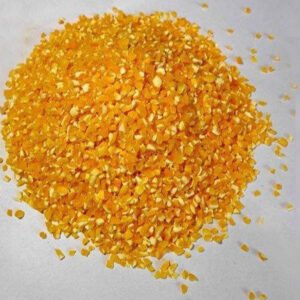Description
High Maltose Corn Syrup
High maltose corn syrup is a clear and viscous liquid with a sweet taste. It is typically colorless or light in color, and its consistency depends on the maltose content. It is produced from corn starch, and the enzymatic process converts a portion of the corn starch into maltose.
Here are the description, uses, and applications of high maltose corn syrup:
Food and Beverage Industry: High maltose corn syrup is commonly used as a sweetener and functional ingredient in the food and beverage industry. It serves as a substitute for sucrose (table sugar) and offers several advantages. It is less sweet than sucrose and provides a milder sweetness that doesn’t overpower flavors. HMCS helps enhance flavor, texture, and stability in various food products.
Confectionery and Baked Goods: High maltose corn syrup is often used in the production of confectionery items like candies, caramels, and toffees. Its higher maltose content helps prevent crystallization, resulting in a smoother texture. In baked goods, HMCS can contribute to moistness, browning, and prolonged freshness.
Fermentation and Brewing: High maltose corn syrup is used as a fermentable sugar source in brewing and fermentation processes. It provides a readily available source of fermentable sugars for yeast during the fermentation of beer, spirits, and other alcoholic beverages
Ice Cream and Frozen Desserts: HMCS is utilized in the production of ice creams and frozen desserts to improve texture, control freezing points, and prevent crystallization. It helps achieve a smoother and creamier mouthfeel.
Pharmaceutical and Nutritional Products: High maltose corn syrup is employed in the manufacturing of pharmaceutical products and nutritional supplements. It can serve as a source of carbohydrates and energy in formulations such as liquid medications, oral rehydration solutions, and nutritional drinks






